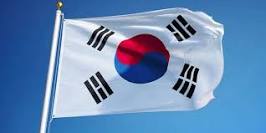Paragraph 1: The End of an Era for South Korean Football
South Korean football is poised to undergo a significant transformation with the imminent lifting of a long-standing ban on foreign goalkeepers in the domestic professional leagues. This landmark decision, announced by the Korea Professional Football League (K League) following a board meeting in Seoul, marks a pivotal moment in the evolution of the sport within the country. For 27 years, the K League has operated under regulations that restricted, and eventually prohibited, the inclusion of foreign nationals in the goalkeeper position. The impending change, set to take effect in 2026, will open the doors for clubs in both K League 1 and K League 2 to recruit goalkeeping talent from across the globe. This shift promises to reshape the landscape of South Korean football, introducing a new dynamic to the competition and potentially altering the trajectory of the sport’s development within the nation.
Paragraph 2: The Genesis and Rationale of the Ban
The ban on foreign goalkeepers was originally instituted in 1996, with a complete prohibition implemented in 1999. The rationale behind this decision stemmed from concerns about the development of domestic goalkeeping talent. At the time, the K League comprised a smaller number of teams, and there were fears that local goalkeepers would be deprived of crucial playing time if clubs were permitted to recruit from abroad. With limited opportunities available, the presence of foreign goalkeepers was perceived as a potential impediment to the growth and progression of South Korean players in this critical position. The ban was thus seen as a protective measure designed to nurture homegrown talent and ensure a steady supply of skilled goalkeepers for the national team and domestic leagues.
Paragraph 3: Reassessing the Landscape: The Path to Reversal
The K League’s decision to lift the ban reflects a significant shift in perspective and acknowledges the evolving realities of the South Korean football landscape. Over the years, the K League has expanded, providing more opportunities for players. The level of competition has intensified, and the focus on developing world-class talent has become increasingly prominent. In this context, the rationale for the ban has been reevaluated, with the K League recognizing the potential benefits of opening up the goalkeeper position to international competition. This change suggests a growing confidence in the abilities of domestic goalkeepers to compete on a level playing field and a recognition that exposure to international talent can elevate the overall quality of the league.
Paragraph 4: Anticipating the Impact: Competition and Development
The lifting of the ban is expected to inject a heightened level of competition into the K League. The influx of foreign goalkeepers will challenge domestic players to raise their game, fostering an environment of continuous improvement and development. The presence of experienced and skilled international players can also serve as a valuable learning experience for younger South Korean goalkeepers, providing them with opportunities to observe and learn from different playing styles and techniques. This heightened competition could ultimately lead to a rise in the overall standard of goalkeeping within the country, benefiting both club and national teams.
Paragraph 5: Strategic Implications for Clubs: Talent Acquisition and Team Dynamics
The change in regulations will offer K League clubs greater flexibility in their recruitment strategies. Teams will have access to a wider pool of talent, allowing them to address specific needs and enhance their squads with goalkeepers possessing unique skill sets. This increased access to international talent can be particularly advantageous for clubs seeking experienced and established goalkeepers to bolster their defenses. However, clubs will need to carefully consider the integration of foreign players into their team dynamics and ensure a balanced approach that continues to support the development of domestic talent.
Paragraph 6: A New Chapter for South Korean Goalkeeping
The lifting of the foreign goalkeeper ban represents a symbolic turning point for South Korean football. It signifies a move towards greater openness and integration within the global football community. While the long-term effects of this decision remain to be seen, it holds the potential to reshape the future of goalkeeping in South Korea. The increased competition, exposure to international best practices, and opportunities for development are expected to contribute to a more dynamic and competitive footballing landscape, ultimately benefiting the growth and evolution of the sport within the nation.


